Health & Medicine
- Animals
This fly’s flesh-eating maggot is making a comeback. Here’s what to know
After a decades-long hiatus, new world screwworm populations have surged in Central America and Mexico — and are inching northward.
By Carly Kay -
 Artificial Intelligence
Artificial IntelligenceAs teens in crisis turn to AI chatbots, simulated chats highlight risks
From blaming the victim to replying "I have no interest in your life" to suicidal thoughts, AI chatbots can respond unethically when used for therapy.
-
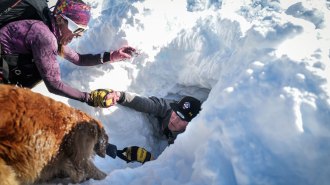 Health & Medicine
Health & MedicineVolunteers agreed to be buried face-down in the snow, for science
A safety device helped maintain a buried person’s oxygen levels for up to 35 minutes, tests show, buying crucial time for an avalanche rescue.
-
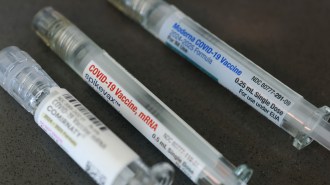 Health & Medicine
Health & MedicineCancer treatments may get a boost from mRNA COVID vaccines
Cancer patients who got an mRNA COVID vaccine within a few months of their immunotherapy lived longer than those who did not, health records show.
By Meghan Rosen -
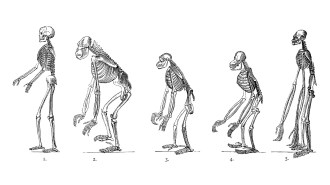 Anthropology
AnthropologyTwo tiny genetic shifts helped early humans walk upright
Scientists have linked bipedalism to changes in how the human pelvis developed millions of years ago.
-
 Humans
HumansNapoleon’s retreating army may have been plagued by these microbes
DNA from Napoleonic soldiers’ teeth uncovered two fever-causing bacteria that may have worsened the army’s fatal retreat from Russia.
By Meghan Rosen -
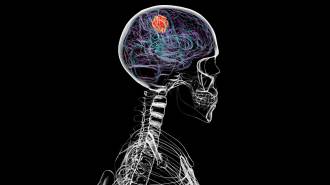 Humans
HumansBrain cancer can dissolve parts of the skull
Glioblastoma doesn't just affect the brain. It also erodes bones in the skull and changes the composition of immune cells in skull marrow.
By Meghan Rosen -
 Health & Medicine
Health & MedicineMost women get uterine fibroids. This researcher wants to know why
Biomedical engineer Erika Moore investigates diseases that disproportionately affect women of color.
-
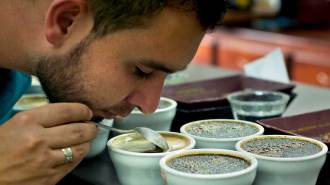 Health & Medicine
Health & MedicineCOVID-related smell loss may last years
Using a scratch-and-sniff test, researchers discovered that smell loss after COVID-19 may linger for more than two years.
By Meghan Rosen -
 Health & Medicine
Health & MedicineEven for elite athletes, the body’s metabolism has its limits
While ultramarathoners are capable of huge energy spurts, overall the athletes top out at 2.5 times the metabolic rate needed for basic body functions.
-
 Science & Society
Science & SocietyOur relationship with alcohol is fraught. Ancient customs might inspire a reset
As evidence of alcohol's harms mounts, some people are testing out sobriety. Look to ancient civilizations' ways for a reset, scholars suggest.
By Sujata Gupta -
 Health & Medicine
Health & MedicineAn estimated 54,600 young children are malnourished in Gaza
A study that screened young children in Gaza for malnutrition found that nearly 16 percent suffered from wasting in August 2025.